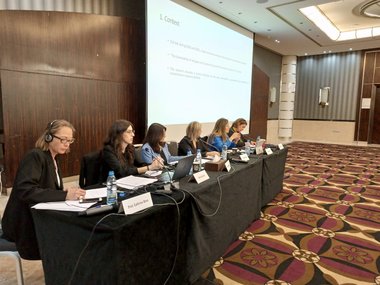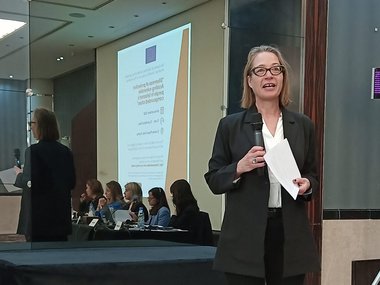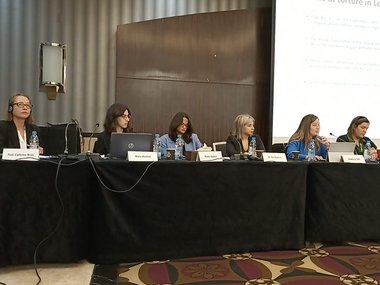Dilemmas of protection: Assisting vulnerable people in Lebanon’s compounded crises
Vulnerability has become a prominent discourse in Lebanon, largely influenced by the international donor community and directly situated in the country’s experience of compounded crises. While protecting vulnerable groups may be a straightforward exercise in well-functioning and evolving societies with institutions to serve the weak, it might not work in Lebanon, where the economic and state collapse hit most of its residents hard and where assistance is often based on clientelism as a result of the country’s sectarian system. Additionally, vulnerability is not easily translated into Arabic.
Hence, the research conducted in the VULNER project shows a need for further unpacking of what vulnerability means in the context of Lebanon. The workshop disseminated the results of the VULNER project and reflected with key stakeholders on the notion of vulnerability in the context of the refugee crisis in Lebanon. The situation for refugees is closely connected with the overall intersection of multiple crises. As the dominant discourse is tuned towards the need for a social protection system, the discourse on vulnerability has come to cover both refugees and Lebanese nationals.
Invited speakers represented the state at national and local levels, the humanitarian sector as well as the researchers that conducted the research in the VULNER project.
The event started with an introduction by the moderator Prof Cathrine Brun Centre for Lebanese Studies and leader of the VULNER Lebanese team on the particular dilemmas of vulnerability in Lebanon. The first speaker, Dr. Ola Boutros, Assistant Professor and Advisor to the Ministry of Social Affairs and Supervisor for the Lebanon Crisis Response Plan outlined Lebanon’s official approach to vulnerability. The second speaker Chaden El Daif, Lawyer and Director of the Social Space Initiative and former VULNER researcher and co-author of the first VULNER report [insert link to first report] from Lebanon focused on the concept of vulnerability in the Lebanese law and the protection it offers. This presentation was followed by Rasha Sankari, Vice President of the Forum for the Rights of Persons with Disabilities and responsible for the Social Committee and People with Disabilities in the Municipal Council of Tripoli as well as Member of the Disaster and Crisis Committee in North Lebanon Governorate spoke on the role of local authorities and their capacities to respond to the needs of residents with vulnerabilities. Thereafter, Hajar Bou Chamoun’s (Protection Advisor at Oxfam) presentation focused on the work of Oxfam and the humanitarian community towards refugees in Lebanon. The final presentation was given by Maria Maalouf, member of the VULNER Lebanese team, who presented the findings of the second VULNER report [insert link for report] on the experiences of Syrian and Palestinian refugees in the Lebanese compounded crisis.
After the interventions, there was a lively discussion and all attendees participated actively, the points raised in the discussions are in correspondence with the reports produced for the VULNER project and helped to confirm the main policy recommendations from the project as well as deepen the VULNER Lebanese team’s understanding for the work with their scientific publication in progress.
Overall, the presentations and the discussion that followed clearly showed the multiple tensions between legal and bureaucratic frameworks and provisions for protection, assistance to vulnerable groups and the experience of vulnerability: the challenge to approach vulnerability when almost everyone is deemed vulnerable considering the dire situation in the country was approached in multiple ways in the discussion.
The event was conducted in Arabic and English with translation.


